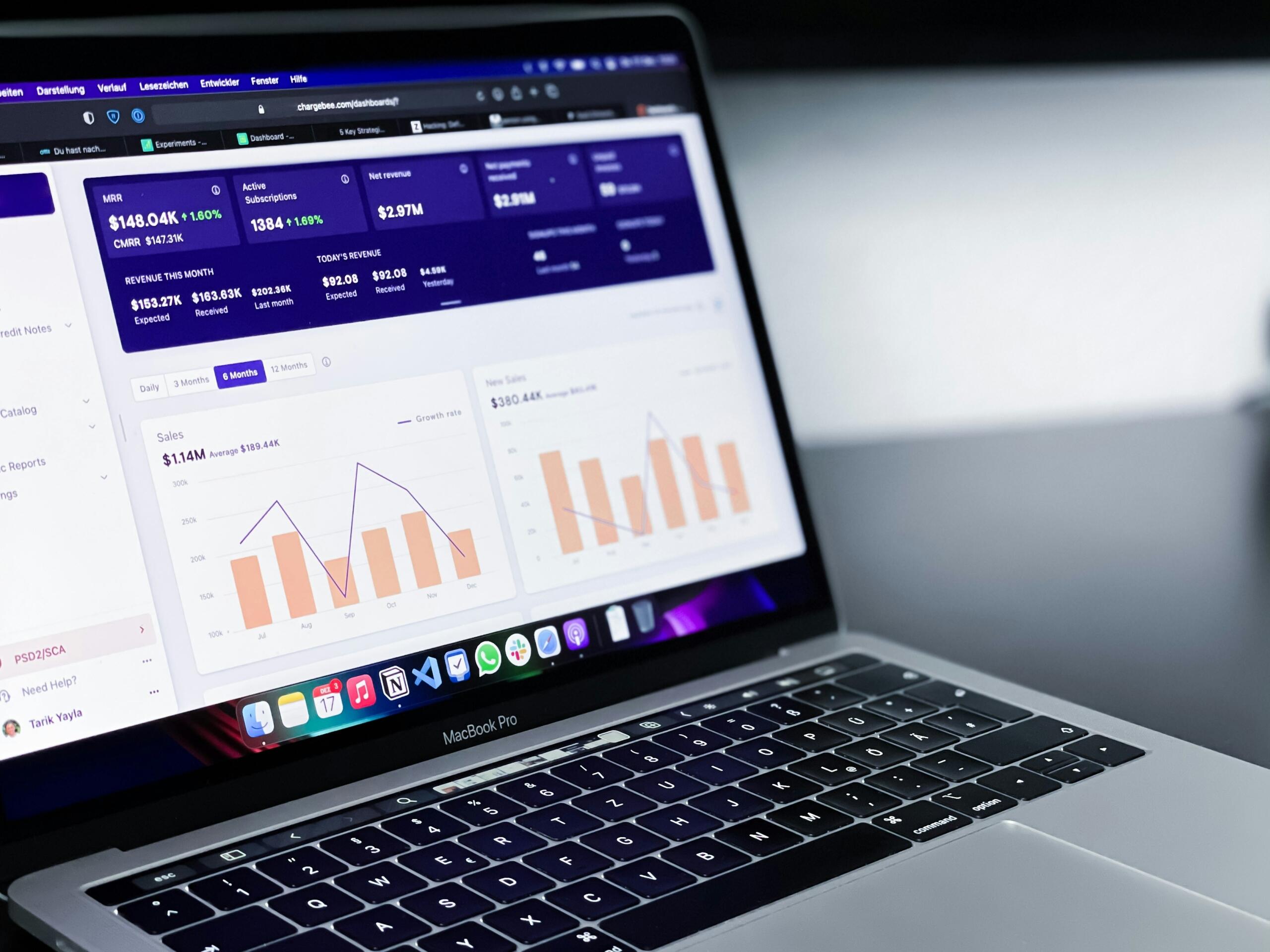In today’s fast-moving economy, making smart business decisions isn’t just about instinct — it’s about data. 📊
So, what is analytics in business? At its core, it’s the process of collecting, interpreting, and applying data to guide strategic choices and solve real-world problems. It’s used across industries to improve operations, predict trends, and enhance customer experiences.
Across Canada, companies in technology, healthcare, and agriculture are using analytics to boost efficiency, anticipate market trends, and innovate faster. Whether it’s a startup tracking user behavior or a hospital optimizing patient care, data is the engine behind smarter strategy.
For students and entrepreneurs exploring business education in Canada, understanding business analytics isn’t just helpful — it’s a competitive edge. In a world shaped by information, those who can turn data into action will be leading the way.

Data Analytics in Canadian Industries: Transforming Business Strategies
Across Canada, businesses are rethinking how they operate, and data analytics is at the heart of that transformation. From streamlining supply chains to personalizing customer experiences, companies are leveraging data to build smarter, more agile strategies. This shift marks a major step toward long-term growth and innovation.
Of Canadian executives consider data analytics vital to business success
In the agriculture sector, for instance, farmers are adopting precision farming powered by analytics. With sensors, satellite data, and forecasting tools, they can monitor crop health, optimize irrigation, and minimize waste, boosting efficiency and crop yields in ways that were unimaginable a decade ago.
In healthcare, hospitals and clinics are using patient data to improve diagnostics and personalize treatment plans. Whether it’s tracking chronic illness trends or analyzing wait times, data analytics companies in Canada are helping medical institutions become more proactive and resource-efficient.
Meanwhile, in the tech and retail sectors, data is driving everything from product development to customer service. E-commerce businesses use real-time analytics to understand buying patterns, refine marketing strategies, and design loyalty programs based on consumer behavior.
Data is the new oil.
Clive Humby, co‑founder of dunnhumby
In today’s economy, the ability to interpret and act on data sets companies apart. As Clive Humby said, "Data is the new oil" — a raw material that, when refined, becomes a powerful engine for insight, innovation, and growth.
What ties all of these applications together is the need for a clear data analytics strategy. Businesses that successfully integrate data into decision-making are better positioned to forecast demand, allocate resources wisely, and pivot quickly when needed.
Importantly, analytics also support sustainable business in Canada. By tracking environmental impact, optimizing energy use, and ensuring ethical sourcing, companies can meet growing expectations from consumers, investors, and regulators. In this way, data isn’t just about performance — it’s also a tool for accountability and resilience.
As Canadian industries continue to evolve, the role of analytics will only grow. From startups to large enterprises, those that invest in smart, strategic use of data will not only stay competitive — they’ll help shape a more sustainable, customer-focused future.
Digital Adoption for Modern Businesses in Canada
Digital adoption refers to the process of integrating digital tools and technologies into everyday business operations.
In Canada’s fast-evolving economy, it’s no longer optional. A strong digital adoption strategy enables companies to stay competitive by streamlining workflows, improving communication, and delivering better customer experiences.
To support this shift, the federal government launched the Canada Digital Adoption Program (CDAP), which offers funding and advisory services to help small and medium-sized enterprises (SMEs) transition into the digital age. From adopting e-commerce platforms to upgrading internal systems, the program plays a key role in accelerating tech readiness across the country.
Only 1 in 10 Canadian small businesses report having fully integrated digital tools across their operations, highlighting a major opportunity gap in digital adoption
Businesses are also turning to powerful analytics tools to guide and support this transformation. Customer Relationship Management (CRM) systems, Enterprise Resource Planning (ERP) software, and AI-powered platforms allow companies to track performance, analyze trends, and make smarter, data driven decisions. These technologies will help boost efficiency and enable teams to identify opportunities for growth, as well as implement an effective data analytics strategy in real-time.
Digital tools have also redefined internal dynamics, illustrating how technology has changed communication across industries. From asynchronous team updates to collaborative dashboards, modern tools are enabling more fluid and efficient interactions between staff, partners, and clients.
Digital adoption is especially important in a labor landscape shaped by the gig economy in Canada, where agility and remote collaboration are crucial. Companies that successfully integrate digital tools can better support distributed teams, manage flexible schedules, and maintain productivity across both gig and full-time roles.
Ultimately, digital adoption is about more than just technology — it’s about mindset. Canadian businesses that embrace continuous innovation through smart tools and data-driven thinking are laying the groundwork for long-term resilience and relevance.
But it’s not just about tech upgrades. The real value lies in how digital adoption enhances performance, streamlines collaboration, and opens new pathways for growth.
Here are just a few advantages modern Canadian companies are putting into practice:
How Technology Has Changed Workplace Communication Across Industries
The way we communicate at work has undergone a radical transformation, especially since the pandemic accelerated the shift to digital-first operations. How technology has changed communication is particularly evident in the rise of remote work, real-time collaboration platforms, and cloud-based tools that have replaced traditional meetings and paper-based workflows.
Before 2020, many Canadian businesses relied on in-person meetings, email chains, and siloed communication systems. Today, platforms like Slack, Microsoft Teams, and Zoom are staples in both small businesses and large enterprises.

These tools enable faster decision-making, reduce delays, and allow for seamless collaboration across time zones and departments.
Just as importantly, analytics tools now play a central role in internal communication. Dashboards and data visualization platforms help managers and employees align on performance metrics, customer trends, and project timelines in a single, transparent space. This not only improves operational clarity but also empowers more informed conversations and proactive strategy shifts.
Cross-functional teams — especially in hybrid or remote setups — rely heavily on data sharing to stay aligned. From marketing and finance to HR and IT, real-time insights help departments break down silos and respond quickly to change. For example, a marketing team may adapt a campaign based on live feedback from customer data, while HR might adjust training approaches based on employee engagement stats.
These digital shifts are also reshaping Canadian consumer behavior, which now expects faster, more personalized responses and greater transparency from businesses. As a result, internal communication must keep pace, ensuring that customer-facing teams have the necessary information to meet rising expectations.
Ultimately, technology hasn’t just improved communication; it has redefined it. Businesses that continue to invest in digital tools and data-sharing platforms are better equipped to foster alignment, adaptability, and innovation across the board.
The Role of Sustainability Analysts in Driving Data-Driven Decisions
As environmental responsibility becomes a core component of corporate strategy, the role of the sustainability analyst is rapidly gaining importance. These professionals use data to help organizations measure, track, and improve their environmental, social, and governance (ESG) performance, ensuring businesses align with both regulatory standards and consumer expectations.
At the core of their work is the ability to turn raw environmental data into actionable insights. From energy consumption and carbon footprints to supply chain efficiency and waste reduction, a sustainability analyst can guide companies toward more eco-conscious operations. Their recommendations help shape long-term sustainability goals while identifying opportunities for operational efficiency and cost savings.
In the energy sector, for example, sustainability analysts evaluate emission levels and advise on renewable energy investments. In retail, they track product lifecycles and consumer demand for ethical sourcing.

And in manufacturing, these analysts assess resource usage and recommend more sustainable production methods. In all cases, data driven decisions are key, whether that means optimizing logistics to reduce emissions or selecting vendors based on sustainability metrics.
Sustainability analysts also play a critical role in reporting. They prepare ESG disclosures and sustainability reports, helping businesses communicate transparently with stakeholders and investors. This transparency is increasingly essential in a market where sustainability influences brand reputation, investor confidence, and long-term viability.
In the context of sustainable business in Canada, the work of sustainability analysts is helping organizations move beyond compliance and into leadership. Their ability to embed sustainability into broader data analytics strategies positions companies to innovate responsibly, not just reactively.
As climate concerns continue to influence both consumer behavior and regulatory frameworks, sustainability analysts are becoming indispensable. They don’t just collect data — they shape the future of responsible business through insight, strategy, and impact-driven action.
Summarize with AI:















